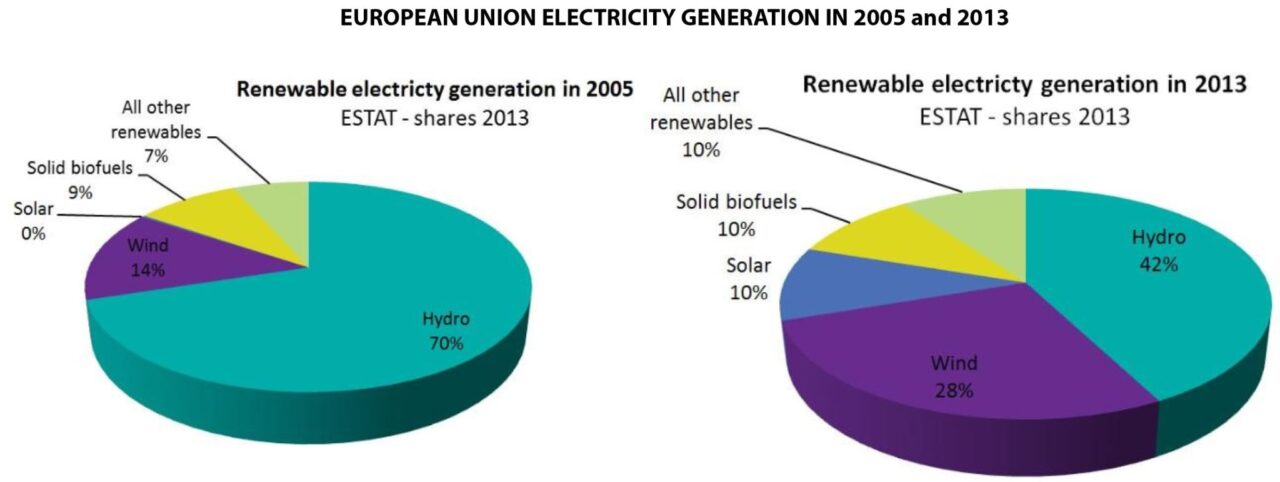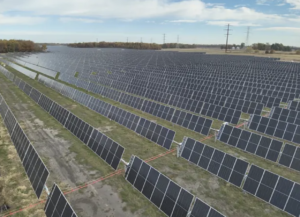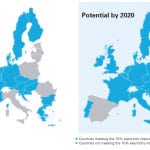At least 25 of the European Union’s (EU’s) 28 member nations are on track to meet renewable energy targets, putting the bloc well on its way to meet its legally binding target of producing 20% of its energy with renewables by 2020, a new report shows.
The European Commission’s (EC’s) 2015 report released on June 16 serves as a mid-term assessment on the progress made in achieving the 20% target.
The report shows that in 2014, the projected share of renewable energy, including for heat and electricity, in the EU’s gross final energy consumption was 15.3%. By 2013, 26% of the EU’s power was already being generated by renewables.
About 10% of total EU electricity was sourced from variable renewable power, such as wind and solar in 2013. Meanwhile, compared to 2005, when hydropower made up a 70% of all renewable power generated in Europe, by 2013, hydro made up a 42% share and wind a 28% share. Solar made up a 10% share of all renewable power, while wood and other solid biomass—called “solid renewables” in Europe—made up a 9.5% share.
The surge in total installed capacity over the last 20 years is pegged in particular to the rapid growth of installed wind and photovoltaic capacity. “To put [that] into perspective, while electricity generation capacity from renewable sources in 2013 reached around 380 GW, the existing electricity generation capacity of fossil fuel plants in the EU was around 450 GW in 2013,” says the report.
The EC said in a June 16 press release that at least 25 member states are expected to meet their 2013/2014 interim renewable energy targets. Nineteen countries, including Austria, Estonia, Denmark, Germany, Italy, Lithuania, Romania, and Sweden, may even considerably exceed their 2020 targets on the basis of their current policies.
However, France, Luxembourg, Malta, the Netherlands, and the UK all need to step up their efforts, it says. The UK’s share of energy from renewable sources was 5.1% for 2013; the nation must source 15% of energy from renewables by 2020.
The EC claimed the report’s results show that the renewable energy directive is working. The deployment of renewable energy resulted in avoided carbon emissions, a reduction in the EU demand for fossil fuels, and it bolstered the EU’s security of energy supply. “[A]lmost half of member states reduced their gross inland consumption of natural gas by at least 7%,” said the commission.
In October 2014, EU leaders agreed to a 40% overall target for reducing greenhouse gas emissions by 2030 compared to 1990. They also agreed to a 2030 policy framework that sets a target of at least 27% for renewable energy and energy savings by 2030. The European Council endorsed this target, which is binding at the EU level.
—Sonal Patel, associate editor (@POWERmagazine, @sonalcpatel)











